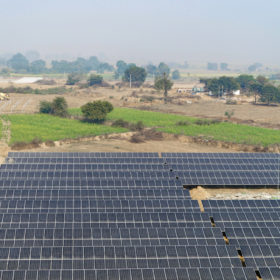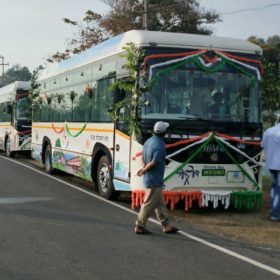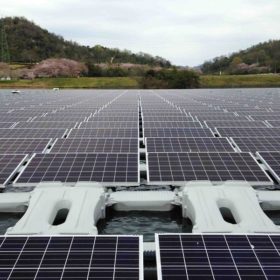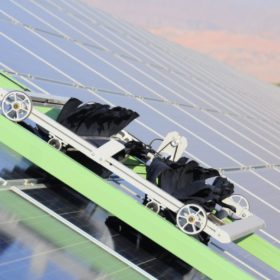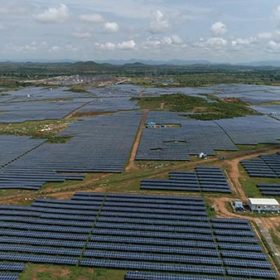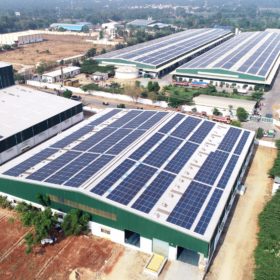SolarArise commissions 75 MW solar plant in Uttar Pradesh
State-run Uttar Pradesh Power Corporation Limited (UPPCL) will procure the electricity generated from the solar plant under a 25-year power purchase agreement.
Eden Renewables India secures US$165 million finance for 450 MW solar project
The project, currently under construction in Rajasthan, was won by the developer in a Solar Energy Corporation of India (SECI) auction.
Andaman island rolls out electric buses
The project, comprising a fleet of 40 electric buses, is being implemented by NTPC Vidyut Vyapar Nigam Limited.
Sterling and Wilson commissions 25 MW solar project in Oman
The latest addition is the Indian multinational’s second project in Oman after a 125 MWp solar plant commissioned in June last year.
Coal miner Singareni Collieries mulling 300 MW floating solar
The floating solar capacity will come upon the reservoir of Manair Dam in Telangana and will be in addition to 300 MW PV plants being set up at the company areas.
Gujarat issues RfS for purchase of 500 MW solar power
The selection of developers to set up 500 MW solar project capacity and supply power to the Gujarat Urja Vikas Nigam Ltd will be done through competitive bidding followed by reverse auction. Bidding closes on February 23.
BHEL seeks panel cleaning system for 75 MW Gujarat solar plant
Bids are invited to supply, install and commission a module cleaning system for the entire solar plant. The work scope also includes operation and maintenance support for three months after commissioning.
Tata Power awarded 320 MW solar project for NTPC
The latest addition, worth around INR 1200 crore (US$162 million), takes the developer’s current order book to around INR 12,000 crore and a project pipeline of around 4 GWp.
Wind-solar-storage hybrid offers cheaper electricity than new coal
A new report establishes the feasibility of wind-solar-storage hybrid projects over new coal plants in the Indian States with high renewable energy potential. Tamil Nadu was chosen for the techno-commercial assessment.
Madhya Pradesh tenders for 40 MW rooftop solar
Solar power developers are invited to install an aggregate 40 MW of grid-connected rooftop solar capacity upon different government departments and private institutions’ buildings. Bidding closes on February 17.
